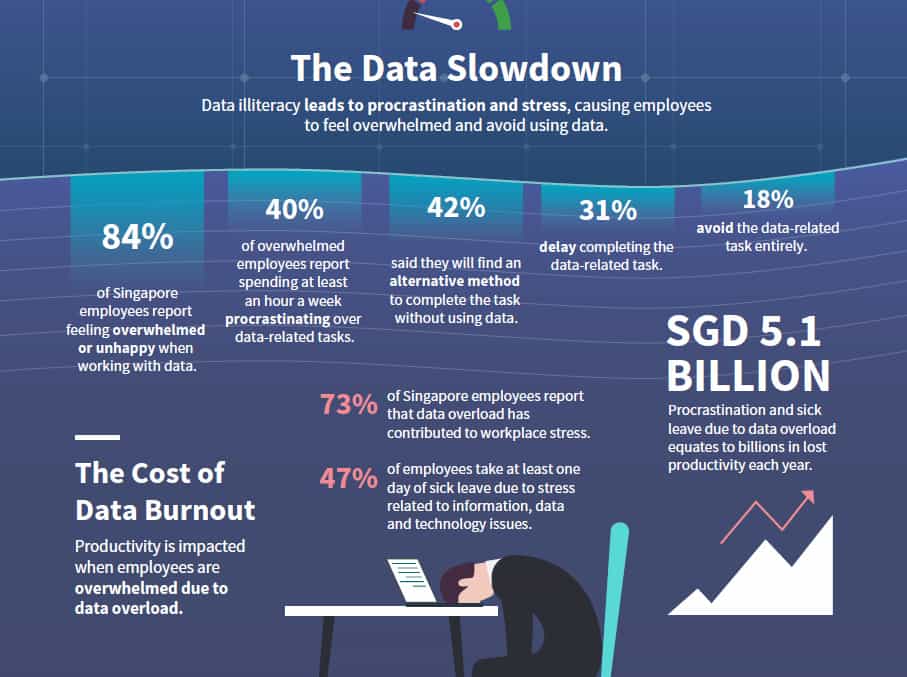Data is a gold mine that can fuel a culture of innovation and growth. However, when employees struggle to make sense of data, productivity and business value can be affected.
Despite effort by industry and government, there remains in Singapore a gap between Singaporean organisations’ aspirations to be data-driven and their employees’ ability to create business value with data.
An Accenture and Qlik’s survey of 1,000 employees in Singapore found that each year, local companies lose an average of more than seven working days (56.5 hours) per employee. This is the second-highest time globally (after India with 69.5 hours) and significantly higher than the average of five working days (43 hours).
These lost days due to procrastination and sick leave stem from stress around information, data and technology issues, and equate to S$5.1bn in lost productivity.

Impact of data literacy gap
The research revealed that the data literacy gap is impacting Singapore organisations’ ability to thrive in the data-driven economy.
Despite the recognition of importance of data, few are using it to inform decision-making. Only 26% of surveyed employees believe they’re fully prepared to use data effectively, and just 16% report being confident in their data literacy skills — i.e., their ability to read, understand, question and work with data.
There is also a lack of confidence (35%) in their own ability to make decisions based on data, with 53% deferring to “gut feeling” rather than data-driven insights when making decisions.
This lack of data skills is shrinking productivity with 84% of employees report feeling overwhelmed or unhappy when working with data, almost the highest percentage globally (after India with 85%).
Forty per cent of surveyed employees even stated that they will find an alternative method to complete the task without using data at all. Data overload (73%) was reported as contributing to workplace stress, resulting in 47% of the local workforce taking at least one day of sick leave.
“No one questions the value of data – but many companies need to re-invent their approach to data governance, analysis and decision-marking. This means ensuring that their workforce has the tools and training necessary to deliver on the new opportunities that data presents,” said Sanjeev Vohra, group technology officer and global lead for Accenture’s Data Business Group.
He added that data-driven companies that focus on continuous learning will be more productive and gain a competitive edge.
The way forward
To succeed in the data revolution, business leaders must help employees become more confident and comfortable in using data insights to make decisions. Singaporean employees who identify as data-literate are nearly 50% more likely to feel empowered and trusted to make better decisions. Forty-eight per cent of employees believe that data literacy training would make them more productive.
Jordan Morrow, global head of data literacy at Qlik added, “Despite recognising the integral value of data to the success of their business, most firms are still struggling to build teams that can actually bring that value to life. There has been a focus on giving employees self-service access to data, rather than building individuals’ self-sufficiency to work with it.”




